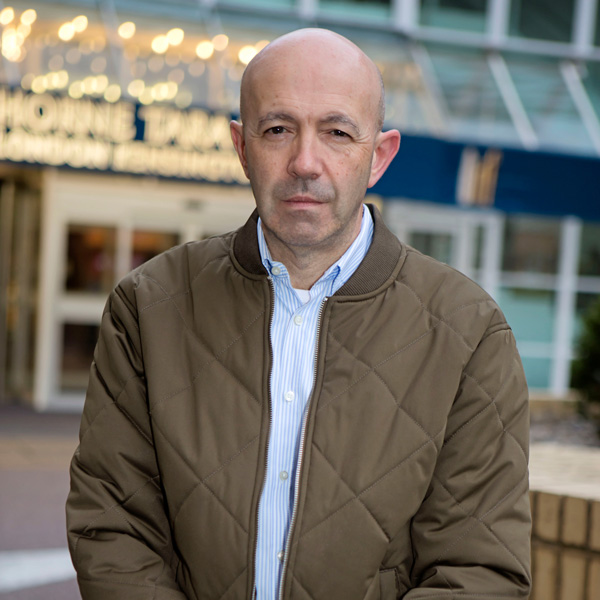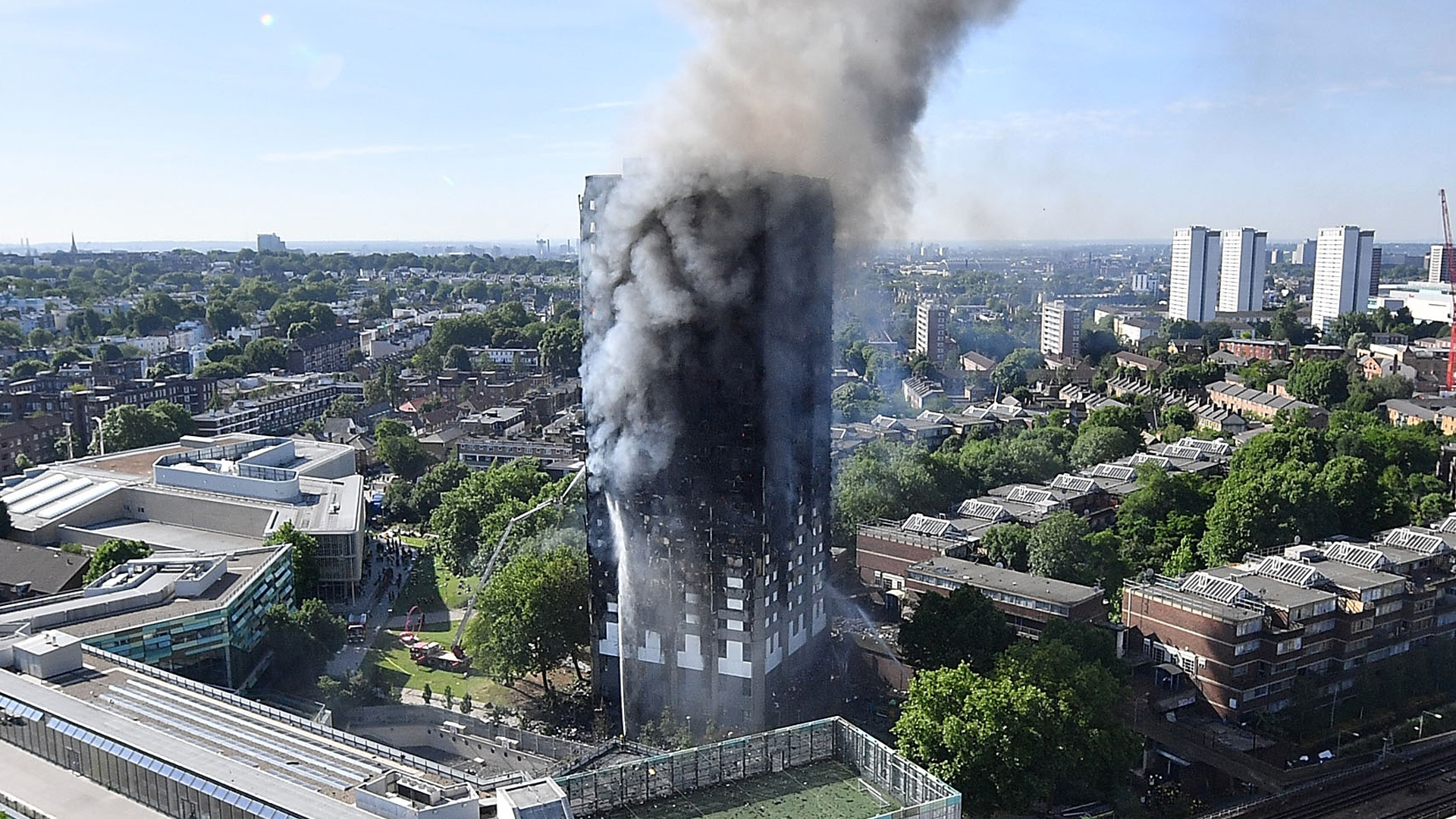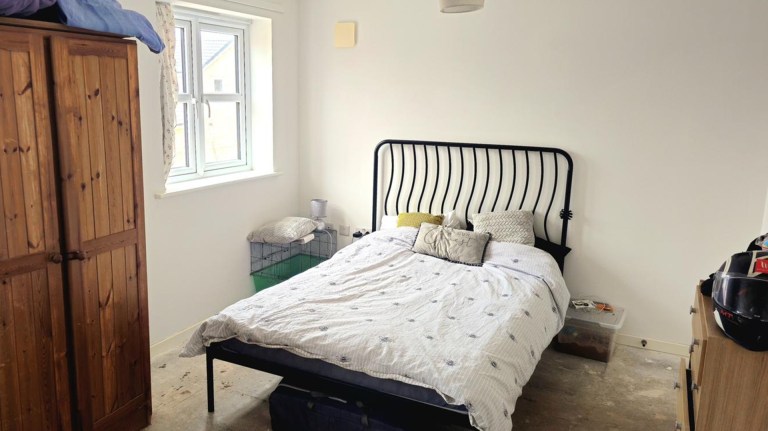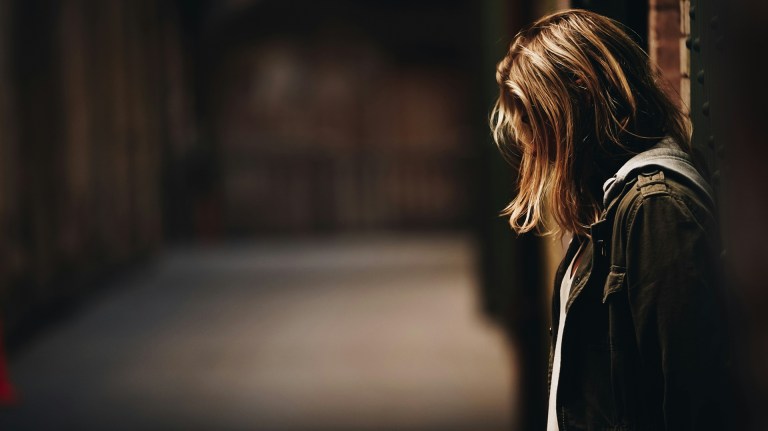He told the inquiry about how he abandoned escape attempts as fire moved down the aluminium composite material (ACM) cladding of the building at rapid pace and described the smoke-filled corridors.
Antonio had been woken at 1.40am by a text from Christopher, who was outside the building. “Get out of the house, the tower’s burning, I love you, Pappy, get out.”
They put profit before human life. We have seen them come up to the stand and not one of them has said sorry or held their hands up and said that we got it wrongAntonio Roncolato
From there, Antonio did his best to keep his head, even eating porridge to focus his mind while stuck in the flat.
“It was a shocking experience,” he tells The Big Issue. “I was alone in the flat as my son was out and from 1.40am to five to six when I got out I was trying to stay cool and calm.
“My thought was only of my son watching this building on fire. For him it was extremely stressful. But I knew I had to stay focused and stay strong.
“It was only as the smoke came in not long before I came out and I was trying to fight the fire and the smoke that I started to get stressed.”
Advertising helps fund Big Issue’s mission to end poverty
The Grenfell Inquiry is currently in its second phase. Delayed by Covid, it is expected that the daily live-streamed hearings will run for 18 months in total. After Phase 1 covered the factual events of the fire, the second phase examines the causes behind the disaster, with fire chiefs, construction firm workers and building safety experts giving evidence.
Antonio, like many survivors and bereaved family members, has kept up with proceedings intently.
The systemic failings routinely uncovered during the inquiry have continued to affect him.
“We have heard many new things, every day we hear something shocking and something new, but they are not surprising. The truth is coming out. Truth and justice are the most important things,” Antonio tells The Big Issue.
“We heard about the company that provided the materials for the refurbishment. That hit me so hard. They put profit before human life. What shocks me is that we have seen them come up to the stand and not one of them has said sorry or held their hands up and said that we got it wrong or it was my fault that happened.”
It doesn’t take someone to strike a match, it can be an electrical fault or anything. But we cannot pay in human lives Antonio Roncolato
The avoidable and tragic events at Grenfell have done much to uncover the extent of fire safety issues in homes across the UK and the burnt-out tower still stands as a reminder that no one should live in a death-trap home.
Advertising helps fund Big Issue’s mission to end poverty
Last month, the UK government confirmed the tower is stable and will remain standing until the fifth anniversary of the disaster at least while ministers at the Grenfell Tower Memorial Commission work on plans for a lasting tribute.
But there is no more fitting memorial than to hold the people responsible for the fire to account and to free others of the fire safety defects that threaten their lives.
Three years after the chair of the independent review of building regulations and fire safety Dame Judith Hackitt called for “major reform” and a new regulatory framework for higher-risk residential buildings, people are still going to sleep every night in unsafe buildings.
How many buildings are unsafe, how work is carried out and who will pay for it is still an issue. As MPs from the Housing, Communities and Local Government Committee put it in their April report: “In order to know how much it will cost to remove unsafe cladding from multi-storey buildings once and for all, how long it will take, and whether the industry has the capacity to carry out these works, the government needs to be collecting and publishing these data as a matter of urgency.”
While the crisis continues, it is likely to have a profound effect on the housing market and means the government’s £5bn Building Safety Fund is unlikely to be enough.
Meanwhile, “wake-up calls” like the fire at London’s New Providence Wharf continue to show the danger of a repeat of Grenfell is still very real.
Advertising helps fund Big Issue’s mission to end poverty
“I felt angry when I saw the New Providence Wharf fire,” Antonio tells The Big Issue. “We are not sending messages in vain. We know it can happen anywhere. It doesn’t take someone to strike a match, it can be an electrical fault or anything. But we cannot pay in human lives.”
Antonio is defiant and hopeful of making everlasting change to ensure the events at Grenfell never happen again.
“We feel the support, we are determined,” Antonio adds. “Before the pandemic, we could see it on the silent marches that took place. People came out to see us in the community, people stopped, the buses and the cars. There is participation. It’s not only a community issue, it is a national issue.
“These people have not died in vain. That is what we are fighting for.”











